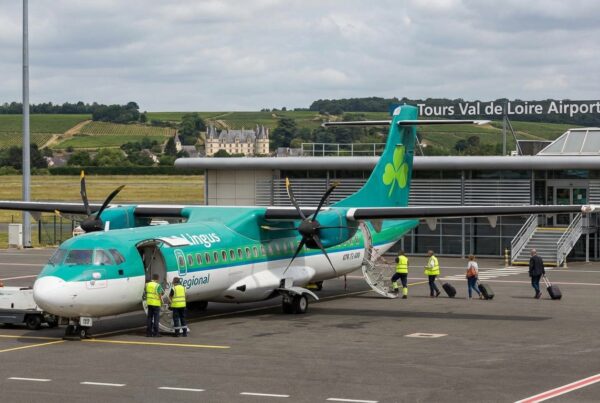In the highly competitive U.S. commercial aviation sector, low-cost airlines are setting themselves apart by offering premium cabin options. This strategy may seem paradoxical at first glance, but it's part of a more in-depth analysis. Why do these airlines offer premium services while focusing their communications on competitive fares? That's what we'll try to understand in this particular context.
Low-cost carriers adopt premium options

In the United States, airlines low-cost such as Frontier Airlines, Spirit Airlines and Southwest Airlines have begun to introduce premium cabin options. This marks a break with the past trend where services were unbundled and passengers only paid for what they used.
Responding to customer requests
This initiative stems in part from the need to meet passenger demands. Customers are increasingly looking for comfort and enhanced flight experiences, prompting airlines to rethink their service strategy and offer premium options.
Cost pressures
Increasing cost pressures also played a crucial role. With rising fuel and wage costs, as well as disruptions caused by geopolitical events such as the pandemic and international conflicts, airline operating costs soared. This rise in costs has necessitated new strategies to maintain profit margins.
Overloading the domestic market
The US domestic market has also been hit by overcapacity, with too many seats available in relation to demand. Executives such as Robert Isom of American Airlines and Scott Kirby of United Airlines have stressed that reducing unprofitable capacity is essential. This situation has prompted low-cost airlines to modify their offerings to survive in a highly competitive market.
Improving the customer experience
Among the notable improvements, Southwest Airlines has abandoned its historic open seating model in favor of assigned seats, while airlines such as Spirit and Frontier have introduced larger seats and additional services. These improvements are designed to offer a more pleasant travel experience and generate additional revenue.
Diversified income strategies
Airlines must now turn to diversified revenue strategies, such as frequent flyer programs and premium seat offers, to offset high costs. Delta Air Lines executives, for example, have emphasized the importance of revenues generated by premium services and frequent flyer programs in sustaining growth and profit margins.
List of reasons for adopting premium options
| Reason | Detail |
|---|---|
| Customer requests | Passengers are looking for greater comfort and a better flying experience. |
| Financial pressures | Operating costs have risen, prompting companies to seek additional revenues. |
| Increased competition | Airlines are battling it out with major players such as American, Delta and United Airlines. |
| Market overload | Too many seats available for demand, necessitating capacity adjustments. |




